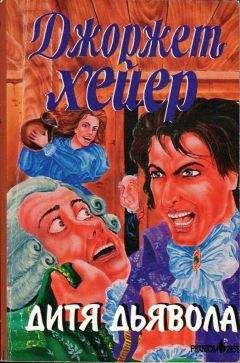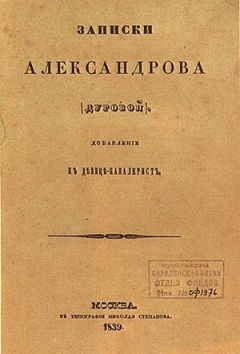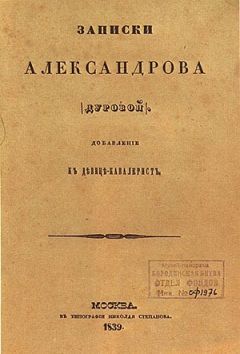Peter Carey - Oscar and Lucinda
The mouth was small, but there was no suggestion of meanness, merely-with the lips straightdetermination or-when they were relaxed and the plump lower lip was permitted to show-a disturbing (because it appeared to be unconscious) sensuality.
She wore a wide-brimmed grey hat with a kingfisher-blue feather which was, although
"dashing," not quite the thing. Her hair-what one could see of it-was brown, less than perfectly tidy. This lack of care, when every other part of her was so neat, and pressed, produced an unsettling impression. The hair seemed wilful. It did not occur to him that her hair was, as she would put it, "like that."
In any case, he knew he had met a remarkable young woman, not his type, but unlike anyone he had known before.
"Of course," he said, pouring the leaves from Lucinda's first cup of tea into the little maidenhair fern he kept for just this purpose. "Of course you must, dash it." He gave her a lot of milk, more than she liked. (It was in deference to her youth, which he felt he must insist on.)
"But you understand that although I write a pamphlet or two, I really don't know anything about the manufacturing process. I might look at a glass factory and see no more than you might." Lucinda felt quite hot. If he would not help, she would go to the accountant whom Chas Ahearn had recommended. She would pay
Oscar and Lucinda
the accountant. She would write him a cheque and have him employ a man for her who could do what she required. Or was this man actually in the process of helping? He spoke less directly, more playfully, than she was accustomed to. Her mother had been proud to call a spade a spade. They had despised "shilly-shallyers." The tea was worse than Mrs O'Hagen's. The room was too hot. She was confused to end up with a clergyman when she had begun with a small pamphlet titled "On Laboratory Arts," a practical guide to glass work in the chemistry laboratory. She had written to the printer who had supplied her with the address of the author. She did not think of clergymen as practical people. Mr Horace (at Gulgong near Mitchell's Creek) had managed to chop off three fingers while trying to kill a sick hen. This man seemed to be confirming her prejudice, to be taking pride in confirming his uselessness.
"So I must warn you," he said, "that while I have adequate theory-in fact you have your saucer resting on it-I have no knowledge or experience of the commercial side."
"Then you cannot help me."
"On the contrary," he declared.
He saw her adjust to this. She did not say thank you, but rather: "The vendors must not know me as a woman."
"And why not?"
"They will act strange," she said, gesturing with her flexible fingers and palms, letting her eyes roll away. (Should she pay the clergyman for his labour?) "It would occupy you a great deal," she suggested. "There would be books-wouldn't there? — to examine." (He cannot be poor, she thought, if he burns four lamps on a sunny day.)
"Yes," he agreed, "a great deal to do. But the object is a lovely one, is it not? It is the object we should celebrate."
He stared at her so excitedly that she looked away, blushing crimson. When she looked up again he saw her eyes had hardened in some way. She lifted her chin. She sat straighter in her chair. He had been misunderstood.
Dennis Hasset hurried to correct the situation. He spoke about glass. He showed her a large lump of cullet, like a little piece of glass rock. She knew nothing, nothing at all. Thousands of pounds to spend, and she knew nothing about it. He insisted she handle it. From his drawer he produced a piece of waterglass. He rang for Frazer and had him bring a beaker that they might dissolve it. He showed her the green glass of Melbourne, that colour being produced by iron oxides in the
After Whitsunday
sand, and let her feel the pure white grains of Botany where one could find a good three feet of fine leached sand, its impurities washed away by centuries of rain. From this Botany sand you could produce the lens for a telescope this clear while-here, he showed her, held the two lenses side by side so she might compare-the lens from Hallet's of London had a faint yellow tinge to it, by no means desirable.
Lucinda thought this Botany lens quite lovely. She took a small lace handkerchief, one of her mama's, from her purse so she might hold the lens without contaminating it. And even when the vicar told her it did not matter if she smeared it, she would not touch it with her naked fingers, which were-she was too aware of this-damp with excitement.
Soon he had all manner of things arranged across his red leather desk. These were not placed with the artfulness whereby he had decorated his study in preparation for the French professor. No, here were particles of glass. A square of poison blue made that colour by the addition of lead oxide. A melted lump of common "beer" in the shape of an old man's face. He said it was the image of his bishop. He said his bishop did not like him, and she would see this in his expression. She saw it was true. He showed her a glass brick, the sole survivor of his compression tests. Lastly, of course, a Prince Rupert's drop which its owner offered to demonstrate.
"No, please. You must not."
"Why must I not?" Dennis Hasset was astonished to find himself peeved. For a moment he disliked his visitor. He did not like the directness of her eyes. He took exception to her tone. He fished in his bottom drawer, looking for some pliers. He found a screwdriver he thought might do, and then he rejected it because the performance would have been inelegant and-besides-he knew she was right. This did not improve his temper. "Why must I not?"
"Because you know what will happen," the girl said simply, "and so do I, and when it is gone you can't look forward to it any more." And then, seeing in his face some of the temper for which he was known-"Oh." She did not say it, but shaped her lips as if she had.
"Oh?" he asked, but in a belligerent sort of way which he watched, himself, with surprise, as if to say, Ah, so this is how I feel.
"Mr Hasset, I am so very sorry."
He felt himself seen through.
"Miss Leplastrier, there is nothing to be sorry for."
"I came to you for help. You were kind to me. I began to argue with
Oscar and Luanda
you about the disposal of your own possessions. Probably I am jealous of you."
"Surely not." He shut the bottom drawer and placed the Prince Rupert's drop on the blotting pad in front of him.
"Yes, quite jealous." She wished to look down, to bow her head, but she would not let herself. Dennis Hasset saw the eyes become excessively bright, like stones placed in water. She wore an odd smile, a neatly tied bow which only just kept the trembling parcel of the face together.
"And why," he said, leaning forward, feeling clumsy, seeking levity, and therefore imitating the accent of an Irishman. "And why," he said, "would that be now?" His brogue was perfect but she did not know that the Irish were such figures of fun that to duplicate their speech was cause for mirth. She knew only that the men walked in front while their women followed behind like prisoners.
"I am jealous because the drop is yours, not mine. Because, more than that, you can enter the glassworks."
"Through the main door, just as you may."
"But I cannot, don't you see? They will not treat me with anything but the greatest condescension. And, besides, I would be made into the creature they imagined I was. Do you understand me?"
She held him with her eyes. She was a child. She was not a child. Her eyes were clear and steady while her voice amplified the slightest trembling in her lower lip.
He was held by the strength and touched by the frailty. "No," he said, "I do not understand you."
"By the way they looked at me, by their perception of me, they would make me into the creature they perceived. I would feel myself becoming a lesser thing. It is the power of men."
"But I am a man."
"No," she said, too impatient to let him develop his argument. "Of men, men in a group, men in their certainty, men on a street corner, or in a hall. It is like a voodoo. Do you know a voodoo?"
"Yes," he said, impressed, not caring that Frazer had come to signal the arrival of lunch to which he had invited three distinguished ladies of the parish and a Mr Jenkins, newly arrived from Edinburgh with a letter of introduction. He waved away his gesticulating servant. Lucinda imagined a fly. It was not the fly season.
"You are appointing me your proxy, then," the clergyman said, "is that it?"
After Whitsunday
"You are making fun of me, and most likely there is justice in that. I am being cowardly," she nodded her head, but the nod was for herself, no* her listener. 'It is obvious to anyone that I am being cowardly, but I have thought about it and it seems I must work within the limitations of my character."
"I was most certainly not making fun of you."
"You would have every right…"
"Whoa, Dobbin!" cried Dennis Hasset.
Lucinda stopped.
"You wish to buy a factory to make glass. Tis a simple enough matter. Is that it?" He smiled. The smile did what the Irish accent never could have.
"Oh, yes, it is!"
"And you need a little help."
"I do know factories, you see," she said leaning forward. "We-I mean my dear parents, when they were alive-inspected many of them, and I am well aware that they are most usually foul and frightening places, but I do not wish this to put me off. I will face it, of course."
"I will be there in a moment, Frazer," said Dennis Hasset. "Yes, yes. Don't worry about him. No, stay, please. Soon, soon, though, I have clergyman's business to attend to. Not nearly so amusing as glass. But yes, I will help you. I did not know you half an hour ago, Miss Leplastrier, and I will tell you I am surprised to hear myself say 'yes' with such enthusiasm, but upon my word I do believe I am looking forward to the exercise. We will need to co-opt, of course. I have a friend, a very clever chap called Dawson…"
"I have more than ten thousand pounds."
Dennis Hasset, who had risen to his feet to conclude the interview, sat down again, his face animated by a quite remarkable smile. "The deuce you do."
"I only wish to invest half in this venture." She was apologetic, sorry she had mentioned the sum. She was only a girl. She had done nothing to deserve such a sum. She imagined she saw censure in his eyes.
"And the rest?" he asked, plunging into the question before his natural politeness could restrain him. If he had "more than ten thousand Pounds" he would leave the confusions of the Church tomorrow.
"As for the remainder, I am being cautious."
"Miss Leplastrier, you are being quite the opposite. You are being admirably reckless. When we began our little meeting I imagined it
Oscar and Lucinda
contents were transferred to a smudged journal ruled up with careful columns and the tickets themselves were held in a series of small manila envelopes in a shoe box marked Private which was kept in Oscar's bottom drawer.
How this betting ticket came to find its way to Hennacombe was a most unpleasant mystery. Oscar, who had, until this moment, shown a lightness, even a jauntiness in manner as he sat himself at his little table, was now prickled by a hot and suspicious sweat. It was a violation. It suggested other violations, other secret and improbable intrusions. Mr Stratton had said: "If you walk to prayers at Kidlington, I will know about it." As he turned over the betting ticket and found the clergyman's tight black hand there, this no longer seemed hyperbole.
Hugh Stratton wrote this on the betting ticket: "Can I assure your father that this is not yours? Or can you, instead, assure me that such a game can indeed be played for profit?" It was signed H.S. It did not occur to Oscar to label Hugh Stratton mad; that his mentor should attempt to blackmail him surprised but did not shock him. His pity for the clergyman enabled him to forgive this and all the other peevish and petty acts he continually committed against all those who came into his orbit. It was Hugh Stratton's nature that, as he became more seemingly unlovable, he was loved the more.
But what did shock Oscar was that this very private piece of paper should be spirited from his room to be used as ammunition against him. Who was the thief? Had Hugh Stratton himself paid one of his "flying visits" while Oscar was safely in tutorial? He did not know. He also saw it did not matter.
Oscar fetched his pen and ink and-without thinking that Hugh Stratton was, once more, responsible for making his porridge cold wrote:
My dear Mr Stratton, how excited I was to receive today one of your rare (and therefore much looked forward to) epistles, and how disappointed I was therefore to discover that it was not what it appeared to be, that you had sealed the envelope, and thereby excluded what we had both wished you to include. I am sure the good Mrs Millar has, by now, discovered the letter amongst the dinner dishes and I enclose a stamp in order that it might be sped on to me and I may hear how things go in Hennacombe and how the fund for the restoration of St Anne's progresses. Professor Arnold asked to be reminded to you and said something about a borrowed book but I am afraid
•m
Une Petite Amie
I have forgot the message and, if this makes no sense to you, I will go and ask him again in order that I may deliver it more faithfully. My fondest remarks to Mrs Stratton. Your, etc., O. Hopkins. From that date Oscar left his betting tickets at the course and all the while he was at Oxford, wrote his form records in a code decipherable to no one but himself. As for Mr Stratton, he believed every word of Oscar's letter. It was neither right nor fair that a gambling student should make him feel so soiled.
36
Une Petite Amie
Lucinda did not really want a factory. She was frightened of it. She walked down to Sussex Street and watched working men emerging from the mills and wharves there. She was repulsed by them just as she was moved by them-the condition of their trouser turn-ups, the weariness of their jackets. They were alien creatures. She watched them as through a sheet of glass, as we, a century later, might look down on the slums of Delhi as a jumbo jet comes in to land. She could not know that she would, within two years, beyond the boundaries of this history, be brought so low that she would think herself lucky to work at Edward Jason's Druitt Street pickle factory, that she would plunge her hands into that foul swill and, with her hands boiled red and her eyes stinging, stand on the brink of the great satisfaction of her life. But at this time (1859) her hands were white and dry. She pitied the workers their poverty and weariness. And yet there was a way they looked at her that made her fear and hate them. It was her age, her sex, her class. She knew it. She knew it as well as you do, but the knowledge did not make it any easier for she was, so to speak, contracted to proceed. It was the factory, she felt, that gave her the entrée



